
Complutense University of Madrid
If you are the contact person for this centre and you wish to make any changes, please contact us.
Lecturer of Palaeontology at the Complutense University of Madrid (UCM) and affiliated researcher at CENIEH
Professor of Prehistory and member of the Institute for Feminist Research at the Complutense University of Madrid
Associate Professor at Camilo José Cela University, researcher at the HM Hospitales Health Research Institute (Madrid) and collaborating researcher in the Department of Personality, Evaluation and Clinical Psychology at the Complutense University of Madrid
Professor of Astrophysics and Director of the Space Astronomy Group at the Complutense University of Madrid
Acute Cardiac Care Unit Coordinator. Cardiovascular Institute. Hospital Clínico San Carlos. Madrid; Associate Professor of Medicine at Complutense University of Madrid; and President of the Association of Ischemic Heart Disease and Acute Cardiac Care of the Spanish Society of Cardiology
Accredited professor, lecturer at the Faculty of Psychology and director of the Research Group on Testimony Psychology at the Complutense University of Madrid
Professor of Biochemistry at the Complutense University of Madrid, president of the Spanish Society of Dietetics and Food Sciences (SEDCA) and treasurer of the Spanish Federation of Nutrition, Food and Dietetics Societies (FESNAD).
Lecturer in the Department of Theoretical Physics and member of the Dynamics of Disordered Systems group at the Complutense University of Madrid
Professor of Animal Health at the Complutense University of Madrid and advisor to the WHO in the field of antibiotic resistance
Permanent professor at the TRANSOC Institute of the Complutense University of Madrid
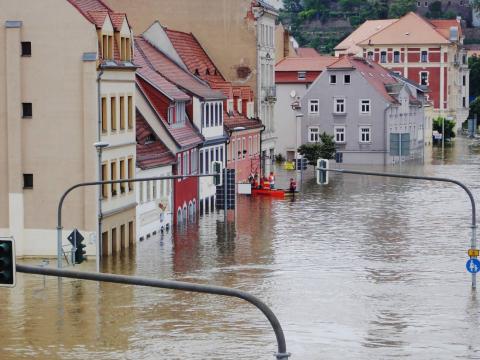
A study published in Nature has analyzed the presence of human settlements in flood-prone areas and their evolution worldwide since 1985. Until 2015, there was an increase of up to 122% in these settlements in flood-prone areas. According to their data, in many regions, the growth in the most hazardous areas is far outpacing development in non-exposed areas, especially in East Asia.
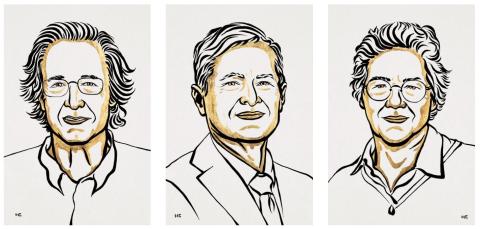
The Royal Swedish Academy of Sciences has awarded the 2023 Nobel Prize in Physics to Pierre Agostini, Ferenc Krausz and Anne L'Huillier for developing "experimental methods generating attosecond light pulses". These advances made it possible to observe the motion of particles in atoms on the shortest time scale captured by humans. An attosecond is a unit of time equivalent to one trillionth of a second, roughly the time it takes light to travel the diameter of an atom.

Las lluvias torrenciales caídas en Libia hace dos semanas fueron 50 veces más probables por el calentamiento global provocado por la acción humana. Algo similar ocurría con las lluvias caídas en Grecia, Bulgaria y Turquía, que fueron 10 veces más probables por el cambio climático, según concluye un estudio de atribución rápido de la Word Weather Attribution (WWA). La investigación apunta a que la tragedia en Libia se agravó por otros factores humanos, como construcciones en llanuras inundables y presas en mal estado. Los autores también analizaron las inundaciones registradas en España a principios de septiembre y concluyeron que precipitaciones tan intensas se esperan una vez cada 40 años.

According to a new report from the Intergovernmental Science-Policy Platform on Biodiversity and Ecosystem Services (IPBES), human activities have introduced over 37,000 exotic species to regions around the world. The document highlights that more than 3,500 of these are harmful invasive exotic species that are often overlooked until it's too late.

The International Agency for Research on Cancer (IARC) and the Joint FAO/WHO Expert Committee on Food Additives (JECFA) have published a health impact assessment of the sweetener aspartame. Citing "limited evidence" of carcinogenicity in humans, IARC has classified aspartame as possibly carcinogenic to humans (Group 2B). For its part, JECFA has not changed the acceptable daily intake of this sweetener, which is set at 40 mg/kg body weight. According to these bodies, with one can of diet soft drink containing 200-300 mg aspartame, a 70 kg adult would need to consume more than 9-14 cans per day to exceed the acceptable daily intake - assuming no other intake from other dietary sources.

The Anthropocene Working Group of the International Commission on Stratigraphy has proposed Crawford Lake in Canada as a reference site for studying the Anthropocene as a possible geological epoch. This proposal for a Global boundary and Stratotype Section and Point (GSSP) was presented today at the International Congress of Stratigraphy in Lille, France. It is a necessary, but not sufficient step for the Anthropocene to enter the International Chronostratigraphic Table, the worldwide reference for geological units. Once approved by the AWG, this proposal has to go through three more votes in international geological bodies.
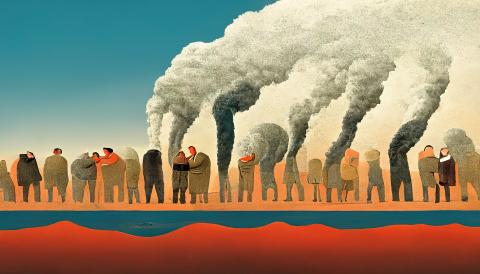
The term Anthropocene describes the profound changes on Earth due to human activities in the past decades. The concept comes from geology but has spread to other areas and has sparked controversy within science. In this article, we provide some keys to understand what the Anthropocene is, and why there has been debate in recent days surrounding its possible declaration.
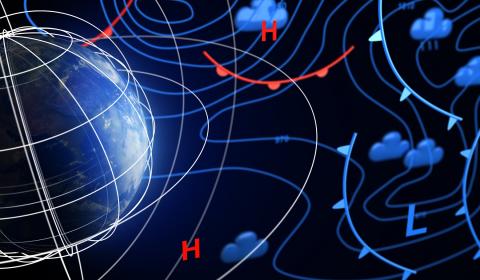
Two studies published in the journal Nature use artificial intelligence (AI) to try to predict the weather. One system, trained on nearly 40 years of global weather data, is capable of predicting global weather patterns up to a week in advance. The second, called NowcastNet, combines physics rules and deep learning for immediate prediction of precipitation, including extreme precipitation.
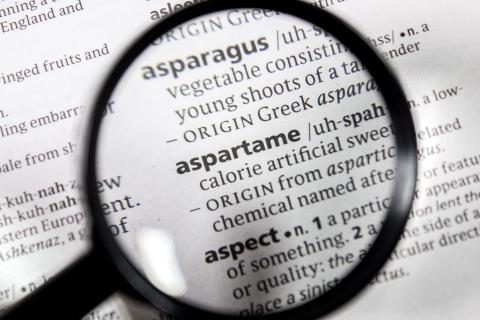
Reuters has reported that aspartame, one of the most common artificial sweeteners, will be listed as "possibly carcinogenic to humans" by the International Agency for Research on Cancer (IARC), an agency of the World Health Organisation, in July.

The WHO has issued a new guideline advising against the use of non-sweetened sweeteners for weight control or to reduce the risk of noncommunicable diseases. The recommendation is based on the findings of a systematic review published in 2022.